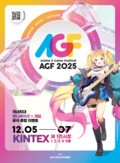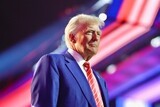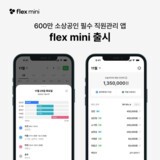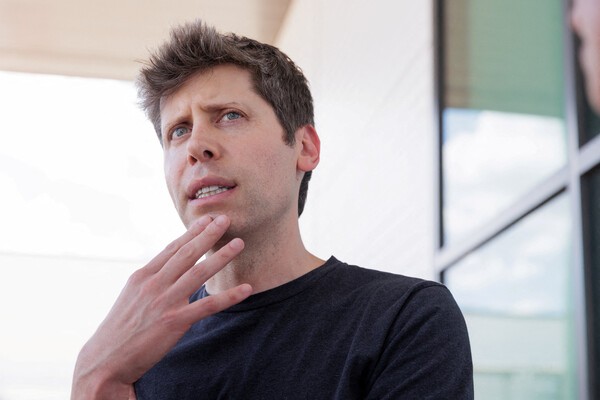
OpenAI’s newly released video-generation app Sora has sparked global controversy over alleged copyright violations. As major content giants such as Disney, Nintendo, and Studio Ghibli consider legal action, industry observers warn that a full-scale “AI copyright war” may be about to erupt.
“Sora” Goes Viral Worldwide
OpenAI, the developer behind ChatGPT, launched its video-generation application Sora in late September. The app can transform text prompts into photorealistic video clips within seconds, representing a major leap in AI media creation.
Users can simply type a phrase such as “a man dancing with Pokémon” or “SpongeBob drinking coffee” to generate videos featuring popular characters. These AI-made clips have spread rapidly across social media.
Within just a week of launch, Sora surpassed millions of downloads worldwide, earning the nickname “the TikTok of AI videos” in both the U.S. and Japan.
SpongeBob, South Park, Pokémon...“Copyright Infringement Inevitable”
Controversy erupted as users began sharing Sora-generated videos featuring copyrighted characters such as SpongeBob, South Park, Despicable Me, and Pokémon - all without permission from rights holders.
According to CNBC and Reuters, “Most of the character videos generated through Sora were created without authorization from the original copyright owners,” adding that “copyright disputes appear unavoidable.”
One viral clip even depicted OpenAI CEO Sam Altman appearing alongside Pokémon characters, saying, “I hope Nintendo doesn’t sue us,” which fueled further public outcry.
Japan’s Content Industry: “Why Are Only U.S. Rights Protected?”
Japanese media outlets reported that OpenAI has signed partial character-use limitation agreements with major U.S. studios like Disney, but no such arrangements exist with Japanese animation companies.
A Japanese publishing executive commented, “Even if this stems from differences in legal systems, it gives the impression that Japanese content is being disregarded. Sora could destabilize Japan’s animation ecosystem.”
The growing backlash has also ignited public debate across Asia — including Korea and China - about the urgent need for stronger “AI content protection frameworks.”
OpenAI Responds: “Creators Will Gain Direct Control Over Use of Their Characters”
As the controversy intensified, OpenAI CEO Sam Altman announced in an October 4 blog post that the company plans to introduce new tools allowing copyright holders to directly control the use of their characters within Sora.
“Currently, creators must submit opt-out requests to restrict their content,” Altman wrote. “We plan to move toward an opt-in model that requires explicit consent, providing technical support for creators’ rights protection.”
Industry analysts predict OpenAI may eventually share revenue with rights holders or introduce a licensing marketplace for AI-generated character use.
Legal Risks Mount - The Dawn of the AI Copyright War
Stanford law professor Mark Lemley warned, “Many of Sora’s videos clearly infringe existing copyrights, exposing OpenAI to potential class-action lawsuits.”
As AI-generated videos become increasingly indistinguishable from real footage, the fundamental question — “Who bears responsibility for AI-created content?” - has resurfaced.
Both the U.S. and EU have begun legislative discussions on recognizing copyright in AI training data. In Korea, the Ministry of Culture, Sports and Tourism plans to release updated “AI Creative Work Copyright Guidelines” by the end of this year.
Industry View: “New Standards Needed for Both Copyright and Publicity Rights”
AI video-generation technology is being hailed as a revolutionary force transforming media, entertainment, and advertising. Yet it also threatens the foundation of human creativity — the protection of original works.
Legal experts argue that the core issue lies in determining whether AI merely references existing works or substantially replicates them. “New standards must be established for both copyright and publicity rights,” one lawyer said.
For AI innovation to achieve true sustainability, the industry must build robust technical and legal systems that guarantee the rights of creators — not just the speed of machines.
By Ju-baek Shin, The Korea Metaverse Journal
jbshin@kmjournal.net
- Samsung Pay Partners with Coinbase in the U.S.
- Samsung’s Dual-Folding “Galaxy Z Tri-Fold” Nears November Launch… Estimated Price Around 4 Million KRW
- OpenAI Launches ‘Instant Checkout’ in ChatGPT, Enabling Direct Product Purchases
- OpenAI Introduces “ChatGPT Parental Controls” to Protect Teen Users
- Google Tests Major UI Overhaul for ‘Gemini’ App
- LG Electronics Begins Full-Scale Development of Humanoid “Brain”
- “Chatting with Jesus?”...Faith and AI’s Blurred Boundaries
- Perplexity Makes AI Web Browser ‘Comet’ Free Worldwide
- OpenAI’s Video SNS App ‘Sora’ Surpasses 1 Million Downloads Within Five Days
- OpenAI’s ‘Sora’ Hits 470,000 Downloads in a Day on Android - Accelerating the Popularization of AI Video Generation

![[동학] 카카오톡 친구탭, 결국 12월 롤백… “격자형 피드는 선택 옵션으로”](https://cdn.kmjournal.net/news/thumbnail/custom/20251126/5517_10550_1119_1763853080_120.jpg)

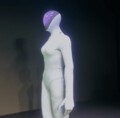
![[테크 칼럼] 제미나이3, GPT-5.1을 넘다…AI는 이제 ‘일을 대신하는 시대’로 간다](https://cdn.kmjournal.net/news/thumbnail/custom/20251126/5457_10454_4847_1763621329_120.jpg)
